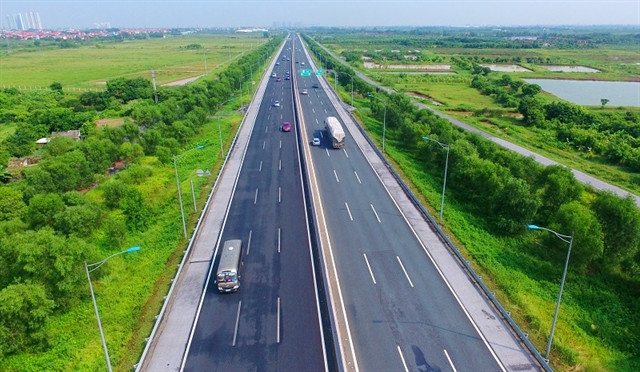 |
The Law on Public-Private Partnership (PPP) has been up and running for over one year and a half, but it has made no difference to domestic investment so far, according to experts.
Dương Dang Hue, legal adviser at the Vietnam Association of Road Traffic Investors, is concerned that the number of PPP-based projects have been declining since the Law on PPP took effect in early 2021.
He underscored four reasons why the law gave no boost to private involvement in public projects.
First, the law is too simplistic, inadequate to regulate many major issues arising from PPP contracts. Without adequate legal grounds, private investors become discouraged and are unwilling to enter into arrangements.
Second, the law fails to clearly define private investors rights to the facilities in the projects. The absence of a clear-cut definition of rights makes investors uncertain about their ownership of the facilities, putting them off.
Third is the right to run the facilities for profits that private investors seek once they put their money into PPP-based projects.
Although the right has been implicitly stated in various legal documents, it is frequently violated in reality, further disheartening investors.
The absence of a mechanism to incentivise private investments in minor facilities along public highways, such as petrol stations and motels, is the fourth reason for low private presence in the public projects scene.
Nguyen Minh Duc, expert at the Legal Department, Vietnam Chamber of Commerce and Industry, estimated that Việt Nam needs around VND900 trillion (US$38 billion) between 2021 and 2030 to reach its goal of 9,000km of highways and 30,000km of national roads by 2050.
The Government expects public money to meet two-thirds of the financial need and private investment do the rest. Unfortunately, almost no private money flowed into public infrastructure in 2021 and 2022.
“Low private involvement indicates that the goal of VND300 trillion of private investments in infrastructure in the next 10 years is not easy,” he said.
He also revealed that many public projects initially expected to kick off under PPP were later funded solely by public money as they received a lukewarm reception from private investors.
Nguyen Trong Hiep, director of the HPVN Law LTD., underscored the need to revise the Law on PPP to encourage the participation of private sector in public projects.
He said the Government had to establish a well-developed risk-sharing mechanism to give private investors decent profits to reward for the risks they bear in PPP-based projects.
A good risk-return tradeoff would act as a financial incentive for the investors to put their money into public infrastructure.
He also said a dispute settlement mechanism should be put in place to deal with public-private disagreements and quickly resolve minor disputes.
He called for transparency when the contracts are put out to tender to ensure best investors win the bids. Inspection should be frequently carried out to prevent favouritism.
Nguyen Hong Chung, chairman of the DVL VENTURES, urged the Government to change its management mindset, establish institutions promoting PPP and found a national fund for PPP development.
He said it was time to change the relationship between the State and the private sector to keep up with the times.
Source: VNS